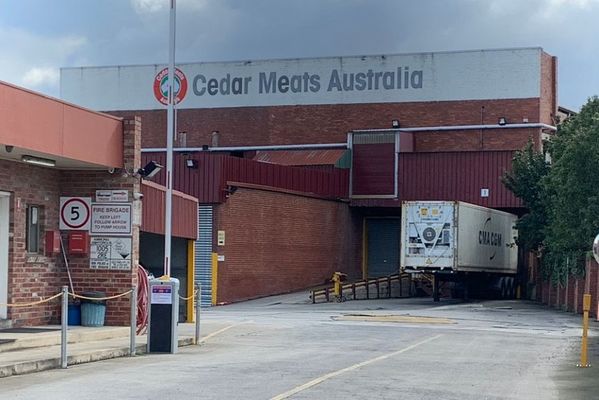Tara Murray
An inquiry into the state government’s handling of the COVID-19 pandemic has praised Cedar Meats for its co-operation during an outbreak at its Brooklyn processing facility last year.
Cedar Meats was the site of the state’s largest COVID-19 outbreak during the first wave of the virus, resulting in 111 cases during April and May.
The public accounts and estimates committee report, which was tabled in State Parliament last week, praised Cedar Meats for co-operating with the Department of Health and Human Services (DHHS) during the outbreak, noting the company was “responsive to all requests for information” by DHHS.
The report also revealed that it took DHHS officers 13 days to request all the information needed to conduct full contact tracing.
Former health minister Jenny Mikakos had earlier advised the committee that the necessary information to allow comprehensive contract tracing of all staff and visitors to Cedar Meats was not provided the DHHS until May 4, the report stated.
The inquiry found that DHHS did not have access to data on the total number of people who may have been exposed to COVID-19 at Cedar Meats until nine days after the site’s first case was identified on April 24, however it said this was because the information wasn’t requested for a number of days.
The report stated that emails provided by Cedar Meats to the inquiry showed that the details of all truck drivers who had been at the facility for more than 30 minutes since April 1 was not requested until May 3, while the contact details of four commonwealth meat inspectors who visited Cedar Meats in April 2020 was not requested until May 5.
DHHS did not request the site’s visitor log for March and April until May 7, according to the report.
On each occasion, Cedar Meats provided the information requested either on the day asked or the following day, the inquiry found.
In a submission to the inquiry, Cedar Meats stated that “at no time did DHHS complain to Cedar Meats about a lack of co-operation, or for any other reason. Rather, to the contrary, DHHS was highly complimentary of Cedar Meats’ responsible and co-operative approach to what was (and remains) a very serious public health issue”.
The inquiry’s findings follow a decision by WorkSafe Victoria in December last year to not take any action against Cedar Meats following an investigation into the company’s handling of the outbreak.
The inquiry also found that the majority of virus transmission during the state’s second wave occurred in five of Victoria’s most disadvantaged areas.
Wyndham, Brimbank, Hume, Whittlesea and Melton had the most active COVID-19 cases as of December 1 and are among the 10 most disadvantaged councils in the state.
The report said the five council areas have a higher than average percentage of insure work.








